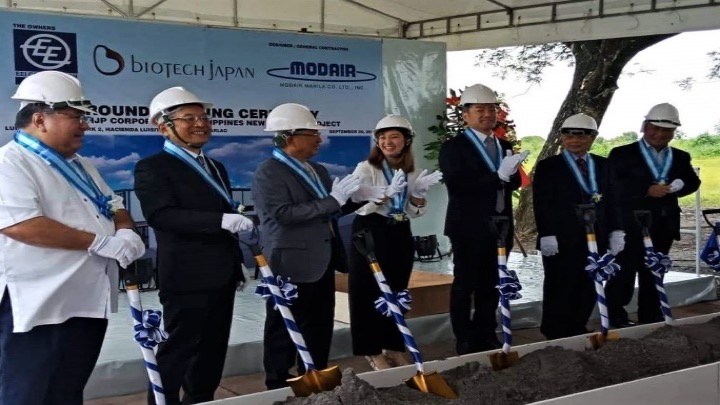TARLAC CITY– Biotech Japan Corporation (BTJ) will build a new factory for its low-protein rice technology in Tarlac.
This is part of its move to help the Philippines address its growing chronic kidney diseases (CKD) health burden while also supporting the rice production initiatives of the province.
“The company has introduced its low protein rice technology to countries like the Philippines to help delay progression of CKD and decrease the costs of medical treatments of these patients,” Japan International Cooperation Agency (JICA) Philippines Project Formulation Advisor Yukinori Watanabe said.

Biotech Japan Corporation will build a new factory for its low-protein rice technology in Tarlac. This is part of its move to help the Philippines address its growing chronic kidney diseases health burden while also supporting the rice production initiatives of the province. (JICA).
In the Philippines, CKD is a growing health burden with some 23,000 Filipinos receiving dialysis treatments in 2013. This is four times higher than the figure of CKD patients in 2004.
BTJ’s business in the Philippines is also a result of the Partnership with Japanese Private Sector initiative of JICA where Japanese companies collaborate to share their innovations towards addressing development issues in JICA partner countries. BTJ was part of the program from 2016 to 2017, and has established its first factory in Batangas in 2018.
“Japanese private sector possesses technological innovations and human resources that can have positive impact on the welfare of people in our partner countries. Through this program, JICA welcomed the sharing of this innovation of low protein rice technology to address one of Philippines’ health burdens. It’s also a win-win partnership between JICA and the Philippines since the program will also support business expansion of Japanese companies, while also making a social impact in a partner country,” Watanabe added.
The BTJ project in Tarlac, set to commence operations in mid-2020, will have 20,000 rice packs production capacity per day and is part of the province’s Rice Revolution 21 program that aims to develop the province’s rice supply chain.
Aside from JICA, BTJ’s initiative in the Philippines is also in partnership with the Yuchengco Group, the Philippine Rice Research Institute and the Food and Nutrition Research Institute of Department of Science and Technology.
“The JICA support gave us the opportunity to explore business in the Philippines. Since JICA has been supporting development cooperation projects here for many years, being part of the JICA program also means the Filipinos can trust us and the program gives us the chance to work with different Philippine organizations,” BTJ Philippines President Kiyosada Egawa said.
JICA’s Partnership with the Japanese Private Sector Program began in 2012 and has since enabled technology transfer, human resource development, and job creation in different parts of the Philippines.
Aside from BTJ, there are currently 17 Japanese companies supporting various development areas in the Philippines under this program. (CLJD-PIA 3)




